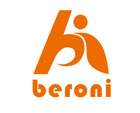職位描述
人工智能
職位需求(投簡歷務(wù)必要中英文雙版,謝謝)
數(shù)學(xué)研究員(側(cè)重于數(shù)理邏輯和計算理論)
COIOS 研究所正在尋找一位熱情且有才華的數(shù)學(xué)家和計算科學(xué)家,致力于開發(fā)一種一般認(rèn)知推理框架,該框架適用于在智能計算范式中實現(xiàn)各種認(rèn)知功能,如認(rèn)知、問題解決、決策、在不確定情況下的定向以及對未知事物的理論化。
職責(zé):
1.參與早期開發(fā)的修改邏輯的一般化。該邏輯應(yīng)能夠處理數(shù)據(jù)、信息和知識,與之相關(guān)的處理過程以及生成新知識的認(rèn)知過程。一般化后的邏輯應(yīng)能夠處理單級和多級推理過程。
2.參與開發(fā)認(rèn)知推理的一般理論,即基于一般修改邏輯的認(rèn)知推理框架(CRF)。這個框架將能夠處理單級和多級推理過程。對于推理過程的綜合,CRF可以結(jié)合合情和可靠的推理模式,并且在必要時可以通過處理可用數(shù)據(jù)提取缺失的信息。CRF 將一般化該領(lǐng)域幾乎所有當(dāng)前的方法,如概率推理、統(tǒng)計推理、啟發(fā)式推理、近似推理以及基于模型的推理等。
3.通過問題導(dǎo)向數(shù)據(jù)處理方法(例如深度學(xué)習(xí)),參與開發(fā)適合在 CRF 中進(jìn)行協(xié)作工作的信息提取方法。
4.參與開發(fā)支持問題導(dǎo)向的將修改計算和子符號方法進(jìn)行組合的方法。
5.參與在 CRF 中開發(fā)各種合情推理方法,如概率計算、可能性計算、模糊計算、近似集和粗糙集方法、基于案例和基于模型的方法等。
6.參與開發(fā)用于對各種認(rèn)知過程(認(rèn)知、決策、問題解決、博弈)進(jìn)行邏輯管理的方法。推理過程的情境組織 —— 語義和意義特征。
7.參與開發(fā)用于支持在復(fù)雜信息處理和認(rèn)知推理中檢測和解決實際不確定性的方法。
8.參與開發(fā)將認(rèn)知推理過程組織為兩個層次的方法:經(jīng)驗(內(nèi)部)層次和理論(外部)層次。
9.參與開發(fā)用于支持將外部知識封裝為內(nèi)部知識的方法和工具。通過使用這些工具,系統(tǒng)將能夠?qū)⒔?jīng)驗知識應(yīng)用于理論構(gòu)建。
參與開發(fā)在 CRF 中進(jìn)行知識表示和管理以及控制其變化動態(tài)的方法。
Responsibilities
(i)Participation in the generalisation of modification logic developed earlier. This logic should be able to handle data, information and knowledge, the processing processes associated with them, and the cognitive processes leading to new knowledge. The generalisation should be able to work with single- and multi-level reasoning processes.
(ii)Participation in the development of a general theory of cognitive reasoning, the so-called cognitive reasoning framework (CRF) based on the general modification logic. This framework will be able to handle single- and multi-level reasoning processes. For the synthesis of reasoning processes, CRF can combine plausible and reliable modes of reasoning and, if necessary, can extract the missing information by processing the available data. CRF will generalize almost all the current approaches in this area, such as probabilistic, statistical, heuristic, and approximate reasoning, as well as model-based reasoning, etc.
(iii)Participation in the development of information extraction methods appropriate for collaborative work in CRF by using problem oriented data processing methods (e.g. deep learning),
(iv)Participation in the development of methods that support problem-oriented combination of modification calculus and sub-symbolic methods
(v)Participation in the development of various plausible reasoning methods in CRF such as probabilistic, possibility, and fuzzy calculi, approximative and rough set methods, case and model-based methods, etc.
(vi)Participation in the development of the methodology for logical management of various cognitive processes (cognition, decision-making, problem-solving, gaming). Situational organization of the reasoning processes - semantics and meaning characteristics.
(vii)Participation in the development of the methodology for supporting to detect and resolve actual uncertainties with complex information processing and cognitive reasoning.
(viii)Participation in the development of the methodology for organizing cognitive reasoning processes into two levels: the empirical (internal) and the theoretical (external) ones.
(ix)Participation in the development of the methods and tools for supporting the encapsulation of external knowledge into internal knowledge. By using these tools, the system will be able to apply empirical knowledge to theoretical constructions.
(x)Participation in the development of the methods for knowledge representation and management in CRF and controlling the dynamics of its changing
資質(zhì)與技能:
潛在候選人應(yīng)具備的預(yù)期學(xué)術(shù)和專業(yè)技能:
英語聽說讀寫流利,要求大學(xué)英語四級(CET - 4)及以上水平,或具備同等英語能力,能滿足日常工作中的英語使用需求,可做無障礙國際交流。
1.擁有數(shù)學(xué)碩士或博士學(xué)位,專業(yè)方向為數(shù)理邏輯和計算理論。
2.了解經(jīng)典和非經(jīng)典數(shù)理邏輯。
3.了解人工智能及其基本技術(shù)的技術(shù)和數(shù)學(xué)基礎(chǔ)。
4.了解相關(guān)方法和途徑(例如概率邏輯等)。
5.具有創(chuàng)造性思維,可發(fā)現(xiàn)新機(jī)會。
6.對發(fā)現(xiàn)和開發(fā)新解決方案有科學(xué)興趣。
7.具有充分、全面和令人信服的數(shù)學(xué)基礎(chǔ)知識。
8.具備出色的溝通技巧。
9.樂于在團(tuán)隊協(xié)作的環(huán)境中工作。
工作地點及薪資待遇:
1.工作地點:天津或北京。
2.薪資待遇:根據(jù)能力和崗位匹配度,薪資可面議。
Qualifications and Skills
The expected academic and professional skills to be possessed by a potential candidate:
Fluent in written and spoken English, CET-4 or equivalent English ability, able to meet the needs of daily work, and able to communicate fluently in English.
?Master’s degree or doctorate in mathematics with a focus on mathematical logic and computing theory
?Understanding of classical and non-classical mathematical logics
?Understanding of technological and mathematical foundations of AI and its basic techniques
?Knowledge of relevant approaches and methods (e.g. probability logic etc.)
?Creative thinking to recognize new opportunities
?Scientific interest in discovering and developing new solutions
?Adequate, thorough and convincing knowledge of mathematical foundations
?Excellent communication skills
?Ready to work within a collaborative environment with teams
Working Place & Salary
?Working place: Tianjin or Beijing
?Salary: The salary is negotiable based on abilities and person-job fit.
工作地點
天津西青區(qū)中聯(lián)產(chǎn)業(yè)園
相似職位
- 數(shù)學(xué)研究員(數(shù)理邏輯和范疇論)8000-16000元
天津 - 西青
 天津貝羅尼生物科技有限公司
天津貝羅尼生物科技有限公司 - 數(shù)學(xué)研究員(側(cè)重于數(shù)理邏輯和計算理論)8000-16000元
天津 - 西青
 天津貝羅尼生物科技有限公司
天津貝羅尼生物科技有限公司
熱門公司推薦
- 霸王茶姬招聘
- 肯德基招聘
- 順豐招聘
- 美團(tuán)招聘
- 京東招聘
- 餓了么招聘
- 比亞迪招聘
- 中國一汽招聘
- 北京汽車招聘
- 蔚來招聘
- 東風(fēng)汽車招聘
- 長城汽車招聘
- 奇瑞汽車招聘
- 理想汽車招聘
- 長鑫存儲招聘
- 天江藥業(yè)招聘
- 藍(lán)月亮招聘
- 安踏招聘
- TCL招聘
- 海信招聘
- 聯(lián)想招聘
- ??低曊衅?/a>
- 寧德時代招聘
- 中興招聘
- 新松招聘
- 京東方招聘
- 申通招聘
- 圓通招聘
- 中通招聘
- 百世物流招聘
- 德邦物流招聘
- 麥當(dāng)勞招聘
- 星巴克招聘
- 海底撈招聘
- 蜜雪冰城招聘
- 瑞幸招聘
- 雀巢招聘
- 騰訊招聘
- 百度招聘
- 快手招聘
- 字節(jié)跳動招聘
- 新華網(wǎng)招聘
- 小米招聘
- 招商銀行招聘
- 中信銀行招聘
- 北京銀行招聘
- 興業(yè)銀行招聘
- 交通銀行招聘
- 建發(fā)集團(tuán)招聘
- 中國移動招聘
- 中國聯(lián)通招聘
- 中國電信招聘
- 中糧集團(tuán)招聘
- 國藥控股招聘
- 中廣核招聘
- 中國船舶招聘
- 強(qiáng)生中國招聘
- 匯豐中國招聘
- 宜家招聘
- 立邦中國招聘
- 伊利招聘
- 青島啤酒招聘
- 京港地鐵招聘
- 寶馬招聘
- 小鵬汽車招聘
- 華為招聘
- 特斯拉招聘
- 吉利招聘
- 奔馳招聘
- 海爾招聘
- 美的招聘
- 京東方招聘
- 施耐德電氣招聘
- 德邦物流招聘
職位發(fā)布者
Fiona-岳/人事經(jīng)理
立即溝通
 天津貝羅尼生物科技有限公司
天津貝羅尼生物科技有限公司貝羅尼集團(tuán)有限公司是一家集研發(fā)、生產(chǎn)、營銷于一體的國際化、集團(tuán)化企業(yè),貝羅尼集團(tuán)已經(jīng)發(fā)展成為一家擁有世界級管理團(tuán)隊及世界級科學(xué)家團(tuán)隊的國際企業(yè),貝羅尼集團(tuán)的核心業(yè)務(wù)主要集中于新藥研發(fā)與臨床、精準(zhǔn)診斷與抗癌免疫細(xì)胞療法、病毒快速檢測、基于互聯(lián)網(wǎng)為核心的大健康產(chǎn)品B2C新零售平臺營銷,并具備了成為生物制藥領(lǐng)域領(lǐng)先的核心競爭能力。于2017年5月12日正式在澳大利亞國家證券交易所成功IPO上市,于 2019年4月29日成功在美國 OTCQX市場掛牌交易,并成為于澳大利亞國家證券交易所(NSX)IPO上市并由 NSX力薦的第一家赴美國 OTCQX市場掛牌交易的國際化企業(yè)。
公司主頁

